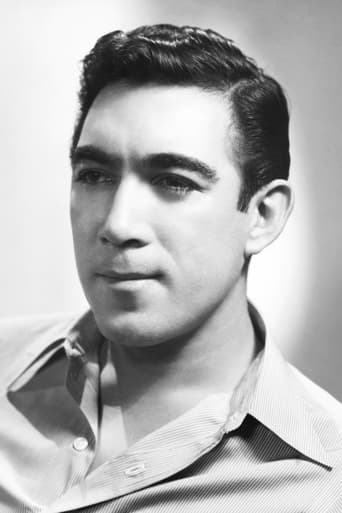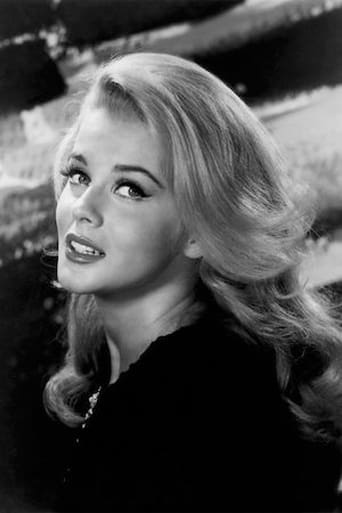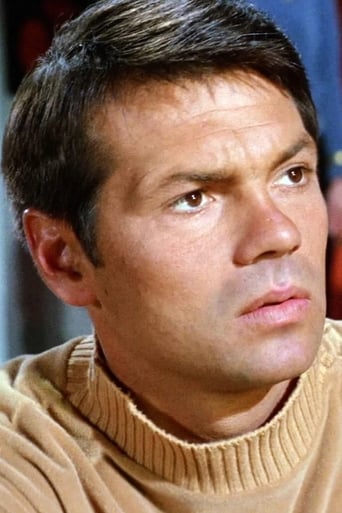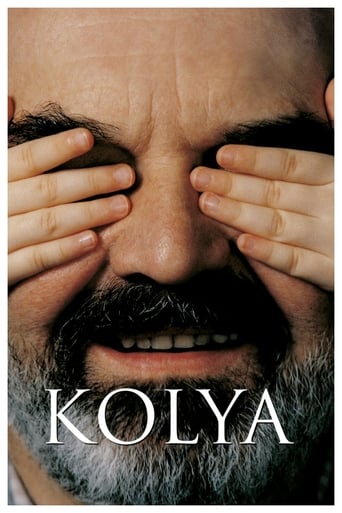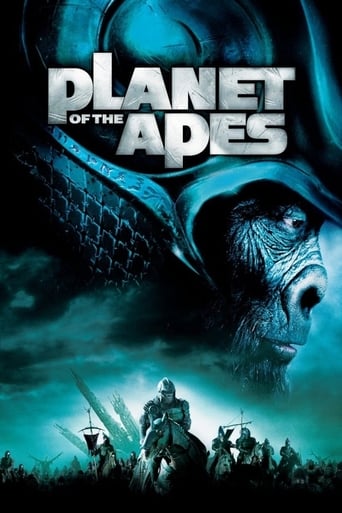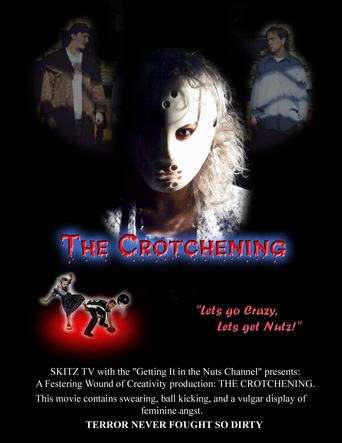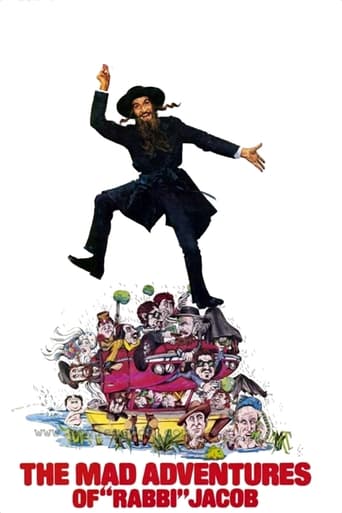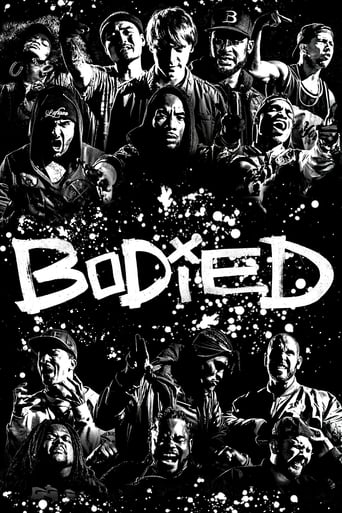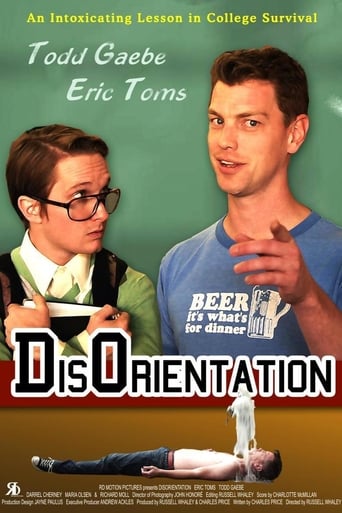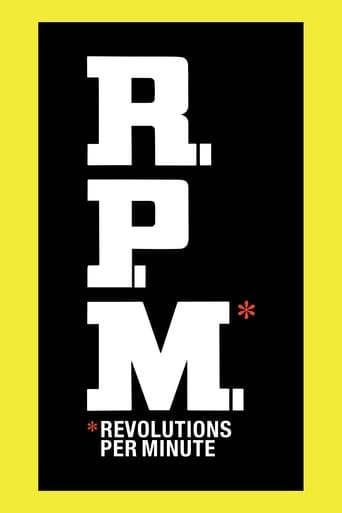
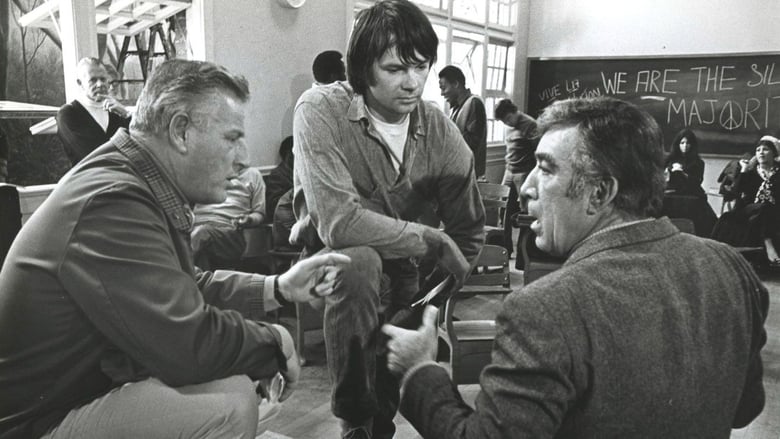
R.P.M. (1970)
R.P.M. stands for (political) revolutions per minute. Anthony Quinn plays a liberal college professor at a west coast college during the hedy days of campus activism in the late 1960s. Radical students take over the college, the president resigns, and Quinn's character, who has always been a champion of student activism, is appointed president. As the students continue to push the envelope of revolution, Quinn's character is faced with the challenge of restoring order or abetting the descent into anarchy.
Watch Trailer
Cast


Similar titles
Reviews
Filmed on "The University of the Pacific" campus in Stockton, R.P.M. (political REVOLUTIONS per minute) at the time of its 1970 release was regarded as the worst of the "counterculture-revolution-on-campus" sub-genre of films. It has not improved with age and almost 45 years later is notable only for two good "Melanie" songs "Stop! I Don't Wanna' Hear It Anymore" and "We Don't Know Where We're Going" which play over three nice montage sequences of the President of fictional Hudson College coming and going to the campus Administration Building.Its fundamental problem (other than having hacks like Stanley Kramer as acting for-the-camera director and Erich Segal as writer) is that the focus is on adults rather than on students. Although casting an aging Gary Lockwood as the student leader meant than no viewer at the time imagined the film would ever have an authentic texture. Even the extras playing the sundry students look to be in their thirties; perhaps their list of demands included unrestricted access to the swimming pool in "Cocoon".The adults are Ann-Margret (Rhoda) and Anthony Quinn (Prof. F.W.J. 'Paco' Perez), whose performances simply do not complement each other in the few scenes they have together (blame Kramer's directing). Ann's big emotional scene midway through the film is an absolute mockfest moment. Poor Ann was one of those women who did not age gently but rather by plateau; she hit her first one in the late 1960's - almost overnight losing all her youthful glow. The idea was to make a 53 year-old professor seem hip because he lived with his 25-year-old graduate student, but the age disparity seems less between them than between Rhonda and a typical graduate student.Then again, what do I know? I'm only a child.
This film is relevant because nothing did change between the film's release date in 1970 and the two generations which have followed.In a conversation on the stairwell toward the end of the film, Anthony Quinn and Gary Lockwood discuss change, indicating that nothing happened between Quinn's and Lockwood's respective generations. Nothing has happened in the two generations that followed, i.e. 1990 and 2010.The sad fact is that society has degenerated. I graduated from a very liberal Big Ten school in 1962 and we didn't have campus unrest. After that, I began a successful career which was interrupted by the draft and a tour in Vietnam. I returned to work and became even more successful because I worked smart and hard. The draft saved me and I wish the draft would have never ended, although I think the Vietnam war was futile. Young men need military service to GROW UP! As for Ann Margaret, she always played sexy but never nude, except for her role in 'Carnal Knowledge' where viewers experienced her large arse.Despite Ann's frivolous on-screen characters (I wonder how she was in private life) this was a film that predicts the future, as in...'Oh yah, life goes on, long after the thrill of living is gone.' (John Mellancamp).
A writer quipped that EASY RIDER was the most expensive movie ever made. Sure, it only cost 400 thousand to make and grossed 60 million. But Hollywood got the idea that it had to produce "youth" movies and so we got THE STRAWBERRY STATEMENT and THE Christian LICORICE STORE and THE MAGIC GARDEN OF STANLEY SWEETHEART and this movie, pretty much all of which are forgotten and got limited or no release.Woodstock was in August of 1969. Altamont was in December of 1969. This means that the Woodstock Nation lasted barely four months. Elizabeth Taylor has kept husbands longer than that.What the major studios did was get mainstream directors and told them make movies about youth in revolt. The result was movies like this which were very expensive imitations of movies that American-International had made in the sixties on nonexistent budgets.RPM is watchable for a fine performance by Anthony Quinn. Lord, but he's a trooper. The script was obsolete before the ink dried on it. I'll be generous and say that Eric Segal's screenplay stinks. Of course, forty years later LOVE STORY doesn't get all that much love anyway.The story centers on a Sociology professor who is picked to be president of a fictional college after protesting students occupy the administration building. The board has a late night meeting and decides to appoint Quinn president based primarily on the fact that he's sleeping with a graduate student in his department who is young enough to be his daughter.Imagine trying to sell that to a major studio in today's Politically Correct world. Ann-Margret plays the graduate student and recognizes the script to be crap, so she has fun playing this airhead and wears ridiculous costumes and, in one scene, talks with while chewing food so that audiences won't have to understand the words she's saying.Incredibly, this is directed by Stanley Kramer. Kramer had become a legend directing films like THE DEFIANT ONES, INHERIT THE WIND, SHIP OF FOOLS, JUDGMENT AT NUREMBERG, and GUESS WHO'S COMING TO DINNER, all of which dealt with Big Ideas from a socially progressive point of view. More importantly, they were full of characters that audiences could identify with and were fully realized human beings.RPM is like a pageant put on by a community college Sociology department. Characters represent Sexual Freedom, Corporate Apathy, Prejudice, Sexual Liberation, Black Power, etc.At its peak, the student revolution actually appealed to a very small per cent of students and had little support from the mainstream community. Worse yet, this film was released in the middle of Nixon's first term of office. Youthful idealism faded as more students pursued graduate studies in Business Administration.Thanks to Turner Classic Movies for running this. I'd heard of it, but figured that Columbia Pictures had destroyed all the existing prints hoping nobody would remember it. Somehow TCM found a pristine print in excellent condition. It would have gotten just one out of ten, but I had to recognize Quinn's excellent work trying to make a dead horse run.
Campus radicals threaten to take over their university; newly-appointed campus president Anthony Quinn attempts to act as a mediator between the angry kids and the stuffy deans. Dated, talky rabble-rouser from esteemed director Stanley Kramer, working from a weak script by "Love Story" author Erich Segal. Segal doesn't lend much insight into the students or their demands, but Kramer gets a pretty good performance from Quinn, trying hard in a hopeless role. Ann-Margret has a small but colorful part playing Quinn's girlfriend. Otherwise, what might have been a fairly timely melodrama is instead tired, drab, and ultimately pointless. *1/2 from ****


